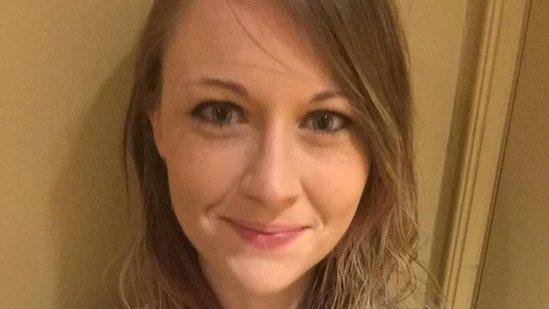'Police officers taken off beat to deal with mental health calls'
- Published
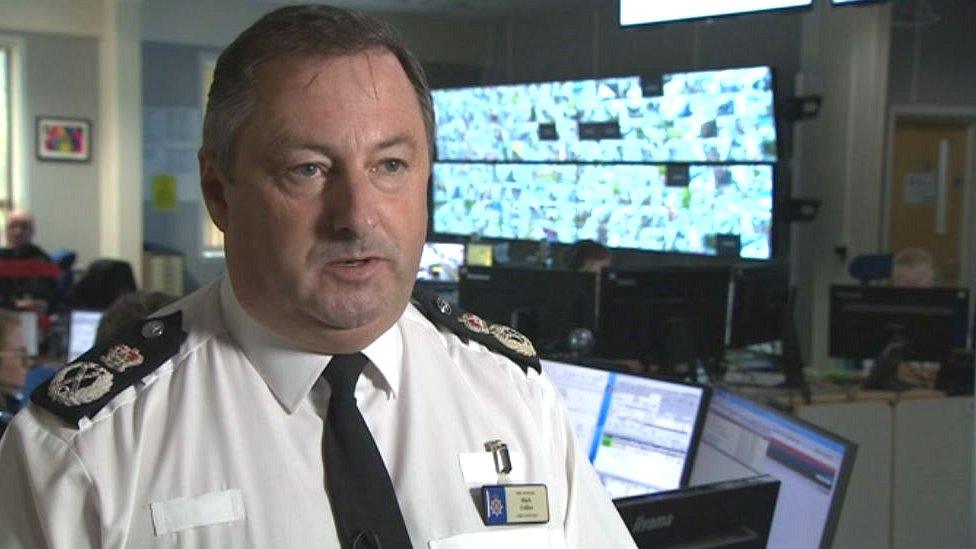
Mark Collins said police should not be responsible for "lower level calls"
Supporting mental health patients can occupy police officers for "10 to 12 hours" before doctors can make an assessment, a chief constable has said.
Specialist support for mental health-related calls costs Welsh police £1.2m a year - but Mark Collins said a "true cost" is the loss of PCs on the beat.
"All the time we are dealing with mental health matters we are taking officers off the street," he said.
"We are sometimes conveying people 60 miles one way and getting delayed.
"So that's a 120-miles round trip and, in fact, sometimes we're sat there waiting for doctors to come for sometimes 10 to 12 hours."
Dyfed-Powys Police chief constable Mr Collins, who leads on mental health and policing for the National Police Chiefs' Council, said officers should always respond in an emergency but should not be responsible for "lower level calls"
The Welsh Government said it spent more on mental health services than on any other part of the NHS.
All four police forces in Wales, whose combined budget is around £600m, use specialist mental health-trained staff in their call centres or in triage teams that attend mental health-related incidents.
But the true cost of the police hours spent on mental health-related incidents would be much higher.
In January, the South Wales Police chief constable said police were often "plugging a gap" despite not being the most appropriate service to support those suffering a mental health crisis.
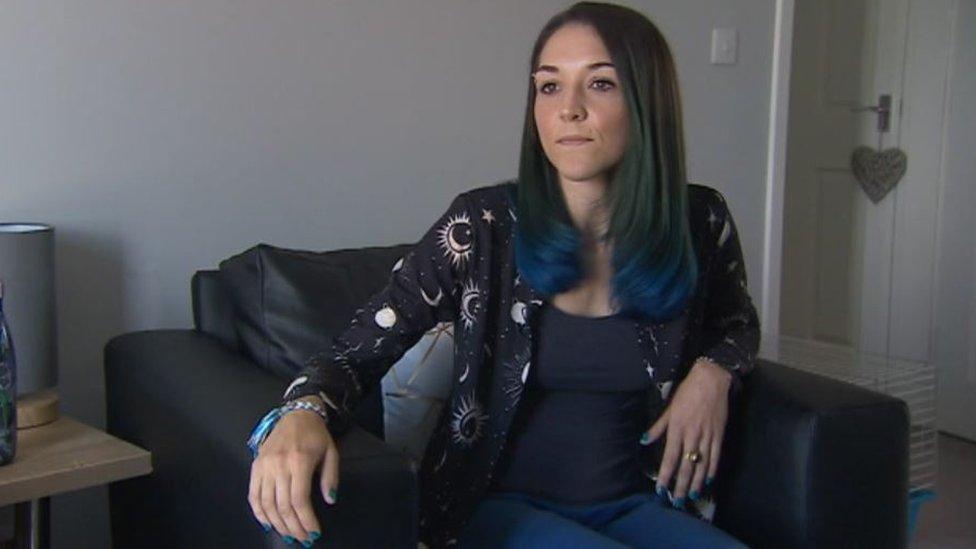
Lowri Smith says police are not the right people to be giving her support
"Very rarely there will be a crime related to a mental health call," added Mr Collins.
"When someone is threatening to harm themselves or someone else, of course we should be deployed - but we are regularly filling in for routine crisis and community care calls where there is not the capacity within the NHS."
Lowri Smith, 29, from Cardiff, said police have been sent to her home five times in the past three years when she has called her local NHS mental health service out of hours.
She said while the police do the best job they can, they are not the right people to be giving her support.
"It can make a situation worse," she said.
"Quite often when I have been in crisis I have shut down, I won't speak to them, I go very quiet, because the police coming to your house can be seen as quite threatening."
On one occasion, officers were accompanied by a specialist mental health nurse.
"It was quite helpful to talk to someone in that field... it's a lot more helpful to see someone face to face," she said.
A spokesperson for Cardiff and Vale University Health Board said: "Patients that are under the care and support of the crisis team have individualised care plans in place dependent on their needs and there are mechanisms in place to support people out of hours."
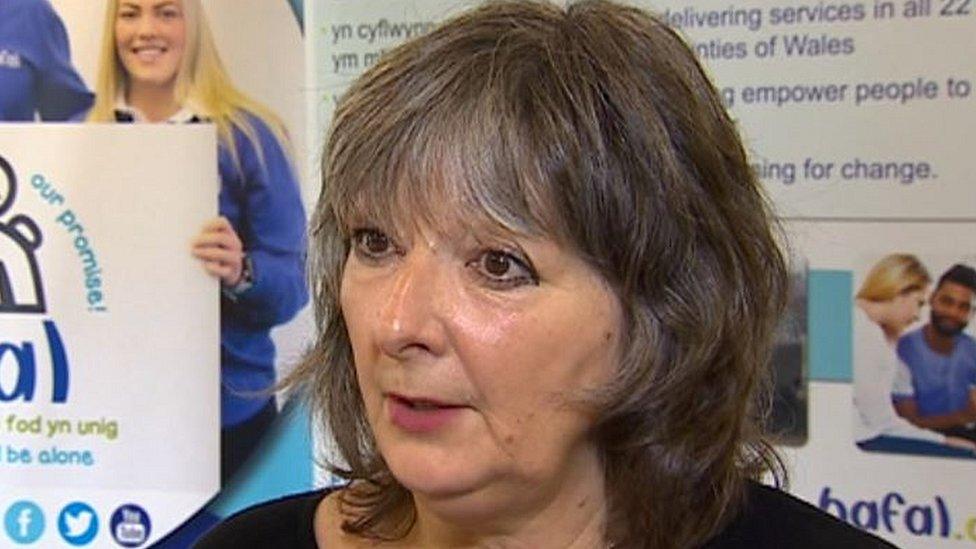
Helen Bennett says similar schemes in England have been very successful
Helen Bennett is a former mental health nurse who now works with the Welsh mental health charity Hafal.
She has been involved with a trial putting two mental health nurses in the South Wales Police control room.
"They will be patched into calls, speak to officers who are out with individuals and they may well speak to those individuals as well," she said.
"They will be assessing over the telephone and advising police officers... they also link in with crisis teams, community mental health teams, third sector charities, local authorities... to make sure the outcome for the individual is a joined-up process.
"From the evidence [of similar schemes] across England... it's been very successful. There has been a reduction in intervention from the police required."
The trial has been organised by the police, local health boards, the Welsh Ambulance Service and local authorities.
"It's about a multi-agency approach really and that's why it has been important to have everyone around the table, it is not a single responsibility," she said.
Mr Collins also recognises the challenges the Welsh NHS faces in dealing the needs of those experiencing mental ill health, and said they need to be provided with more funding.
Earlier this year the UK government announced an extra £2.3bn in a 10-year plan to fund mental health services provided by NHS England.
"We need to have that level of funding into Wales to provide frontline services," Mr Collins said.
A Welsh Government spokesperson said: "For 2019-20 we have increased the mental health ring fence to £679m, including additional investment in key areas such as the development of perinatal community mental health services and children's mental health services."
- Published2 September 2019
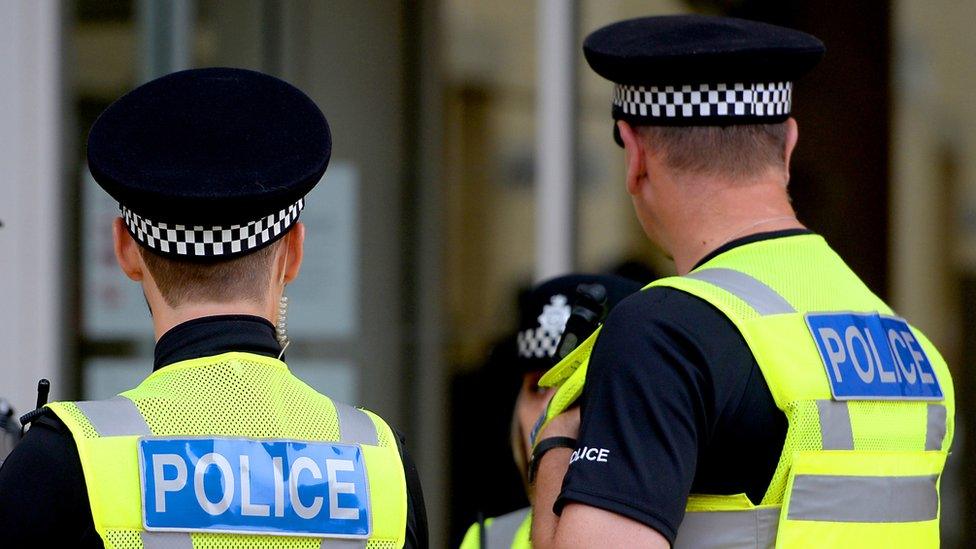
- Published2 January 2019
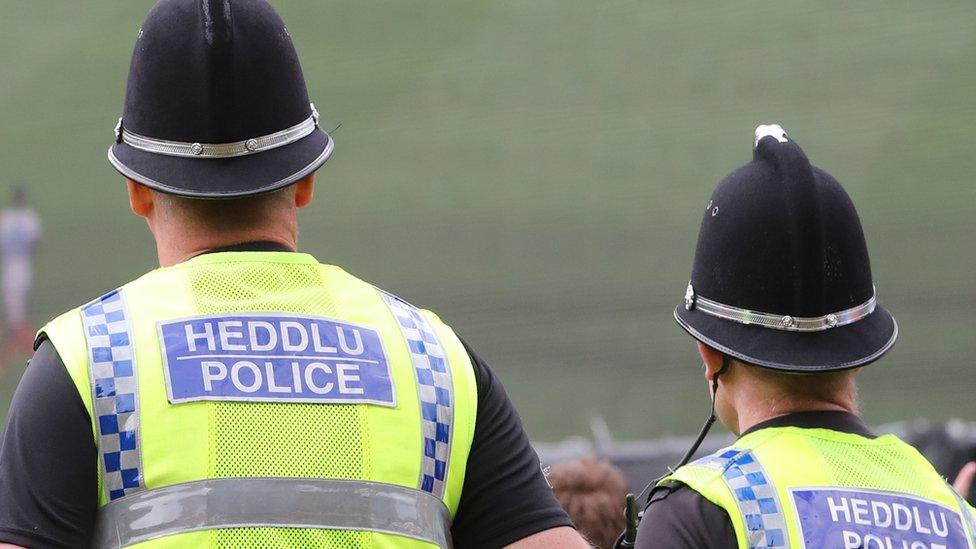
- Published11 October 2018

- Published28 October 2017
